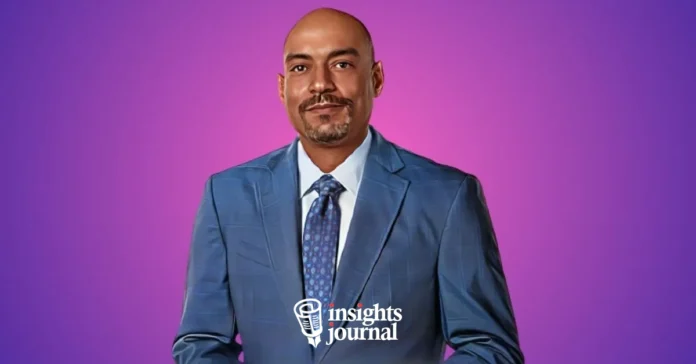Country music’s rising star Dylan Scott has built an impressive financial empire that might surprise you. His journey from Louisiana’s backwoods to Nashville’s bright lights showcases what happens when raw talent meets smart business decisions.
Dylan Scott net worth currently sits at an estimated $10-15 million as of 2025, marking a dramatic leap from his humble beginnings. This wealth didn’t happen overnight—it’s the result of chart-topping hits, sold-out tours, and some surprisingly clever business moves that go way beyond music.
The Financial Journey: How Dylan Scott Built His Fortune
Scott’s wealth story reads like a country song itself—full of ups, downs, and ultimate triumph. Back in 2017, his net worth barely touched $1.7 million, which seems almost quaint compared to today’s figures.
The real turning point came with “My Girl,” the platinum-certified hit he wrote for his wife Blair Robinson. This single didn’t just climb the charts—it opened the floodgates to serious money. The song’s success transformed Scott from a hopeful artist into a legitimate country music powerhouse.
By 2021, industry estimates placed his wealth between $100,000 to $1.7 million, showing the volatile nature of entertainment finances. Fast-forward to 2025, and Dylan Scott net worth has exploded into the eight-figure range, proving that persistence pays off in Nashville.
The progression isn’t just impressive—it’s strategic. Scott didn’t rely solely on music sales like many artists do. Instead, he diversified his income streams, creating multiple revenue sources that work together to build lasting wealth.
Chart Success: The Foundation of Scott’s Wealth
Dylan Scott’s commercial achievements form the bedrock of his financial success. He’s achieved six number-one singles on country radio, including chart-toppers like “My Girl,” “Nobody,” “New Truck,” and “Can’t Have Mine.”
These hits aren’t just bragging rights—they’re money machines. Each number-one single generates substantial royalty income through radio airplay, streaming platforms, and digital downloads. His position as the fourth most-played artist at country radio in 2025 translates directly into serious cash flow.
Scott’s streaming numbers tell an even more impressive story. His career streams have surpassed 4 billion across all platforms, representing a massive source of ongoing revenue. While streaming royalties might seem small per play, they add up quickly when you’re pulling billions of streams.
His debut album “Dylan Scott” reached number five on the Billboard Top Country Albums chart, selling 9,000 copies in its first week. Though modest by today’s standards, this album’s longevity continues generating revenue years after its 2016 release.
The follow-up album “Livin’ My Best Life” continued this commercial momentum. Its lead single “New Truck” climbed to number one, proving Scott’s ability to consistently create hit music that resonates with fans and generates income.
Beyond Music: Smart Business Moves That Boosted His Worth
Here’s where Dylan Scott net worth gets interesting—he’s not just a musician. During the pandemic, Scott launched “The Trash Guys,” a residential garbage collection business with friend Jordan Powell. This unconventional venture has reportedly become quite lucrative.
The trash business might seem random, but it’s actually genius. While music revenue can be unpredictable, garbage collection provides steady, recurring income. It’s the kind of smart diversification that separates wealthy entertainers from those who go broke after their fifteen minutes of fame.
Scott’s merchandise empire contributes significantly to his bottom line. His official merchandise ranges from $25 beanies to $40 t-shirts, demonstrating strong brand appeal beyond his music. These sales represent pure profit margins that artists love.
Speaking fees and appearances add another layer to his income portfolio. As an ACM-nominated artist with industry recognition, Scott commands premium rates for personal appearances, corporate events, and festival performances.
His Curb Records deal provides promotional resources and industry backing that amplifies his earning potential. Major label support means better radio promotion, streaming playlist placement, and tour booking opportunities that independent artists struggle to access.
Touring Revenue: Where the Real Money Lives
Live performances represent Scott’s biggest money-maker, and his touring schedule reflects this reality. His 2025 “Easy Does It” tour features major venue appearances with ticket prices ranging from $35 to $55.
VIP packages through Ticketmaster command premium prices, often doubling or tripling standard ticket costs. These exclusive experiences include meet-and-greets, premium seating, and exclusive merchandise that fans eagerly purchase.
Scott’s touring history with major acts like Garth Brooks, Luke Bryan, and Chris Young has elevated his market value. These high-profile collaborations exposed him to larger audiences and higher-grossing venue opportunities.
Merchandise sales at live shows generate additional revenue streams. Concert-goers typically spend $20-50 on t-shirts, hats, and other memorabilia, creating substantial profit margins for touring artists.
The financial impact extends beyond ticket sales to include sponsorship opportunities, radio promotion tie-ins, and potential streaming boosts from live performance exposure. Each tour stop represents multiple revenue opportunities that smart artists like Scott maximize.
Speaking of smart financial moves, celebrities like Rudy Ruettiger net worth and Neal Katyal net worth show how diversification creates lasting wealth across different industries.
Industry Position: How Scott Stacks Up
Dylan Scott net worth places him in competitive territory among contemporary country artists. While he hasn’t reached the wealth levels of superstars like Luke Combs ($20 million) or Kane Brown ($15 million), his trajectory suggests continued growth.
His 2021 CMT Music Award for Breakthrough Video of the Year marked a significant career milestone. Industry recognition typically translates into higher performance fees, better recording contract terms, and increased merchandising opportunities.
Scott’s authentic connection with audiences provides sustainable commercial appeal. His family-oriented brand and genuine personality resonate strongly with country music fans, suggesting continued commercial viability for his music and related ventures.
The country music industry’s continued growth, particularly in streaming and live performance sectors, creates favorable conditions for artists like Scott to expand their wealth. His established fan base positions him well for sustained financial success.
Future Prospects: What’s Next for Scott’s Fortune
Scott’s upcoming album “Easy Does It,” scheduled for May 30, 2025 release, represents significant revenue potential. The lead single “This Town’s Been Too Good To Us” has already achieved number-one status, suggesting strong commercial prospects.
His proven ability to create chart-topping content, combined with his diversified business interests, positions Scott for continued wealth accumulation. The combination of music royalties, touring revenue, and business ventures creates multiple income streams that work synergistically.
Scott’s family-oriented brand creates opportunities for lifestyle-based partnerships and endorsements. His marriage to Blair Robinson and their children have become integral parts of his public persona, opening doors to family-friendly brand collaborations.
The authenticity of his personal brand provides a solid foundation for long-term commercial success. In an industry where manufactured personas often fail, Scott’s genuine connection with fans suggests sustainable earning power.
The Bottom Line on Dylan Scott’s Financial Empire
Dylan Scott net worth represents more than just musical success—it’s a masterclass in smart career management and business diversification. From his platinum-certified hits to his unconventional garbage collection business, Scott has built a financial portfolio that generates income from multiple sources.
His journey from $1.7 million to $10-15 million in less than a decade proves that talent combined with business savvy creates lasting wealth. The progression isn’t just impressive—it’s strategic, showing how modern entertainers can build sustainable financial empires.
Scott’s story continues evolving, with upcoming album releases, expanding touring schedules, and growing business ventures likely contributing to further wealth accumulation. His proven adaptability and business acumen suggest that his financial success will continue growing, potentially placing him among country music’s wealthiest artists in coming years.
What’s your take on Dylan Scott’s financial journey—impressive business moves or just lucky timing?



